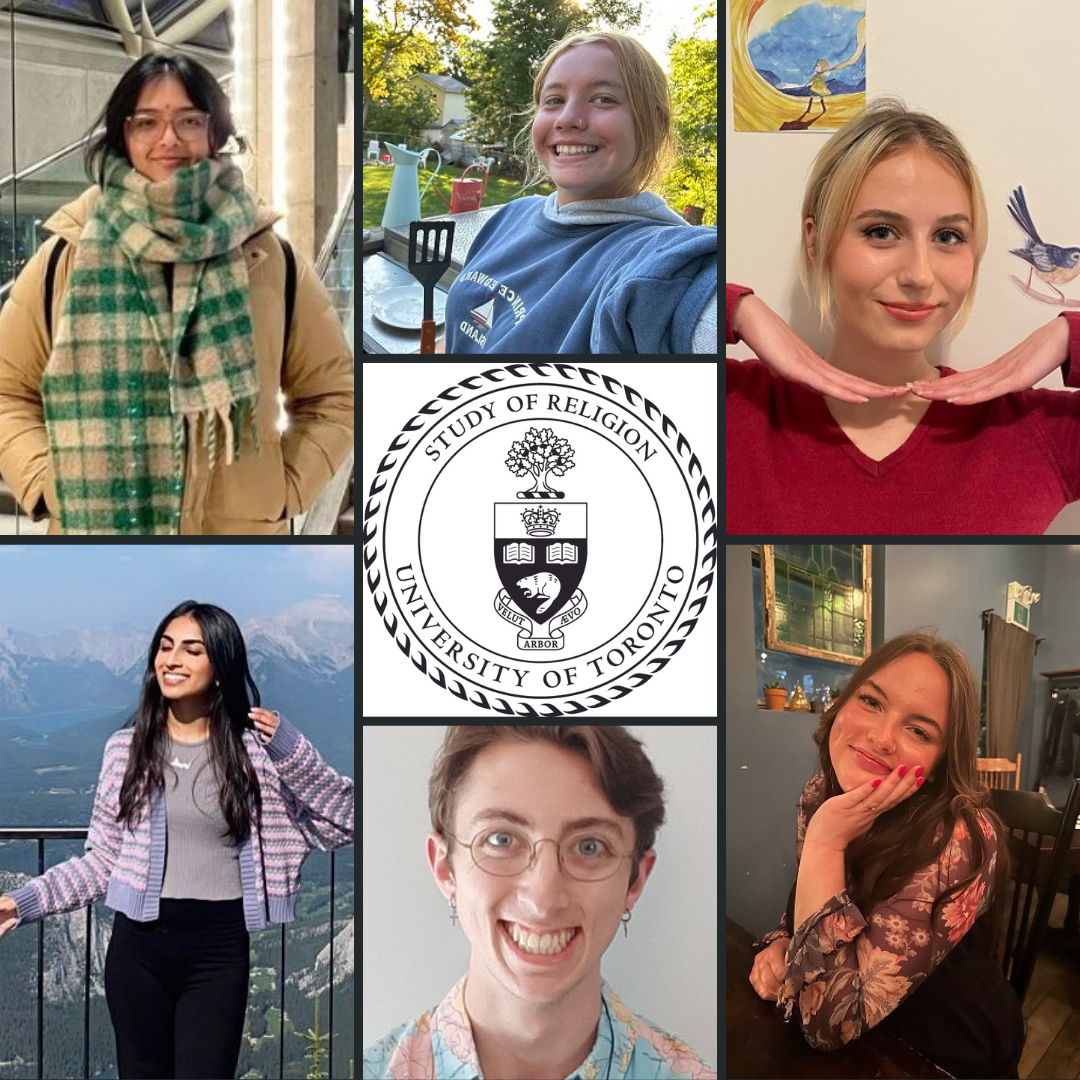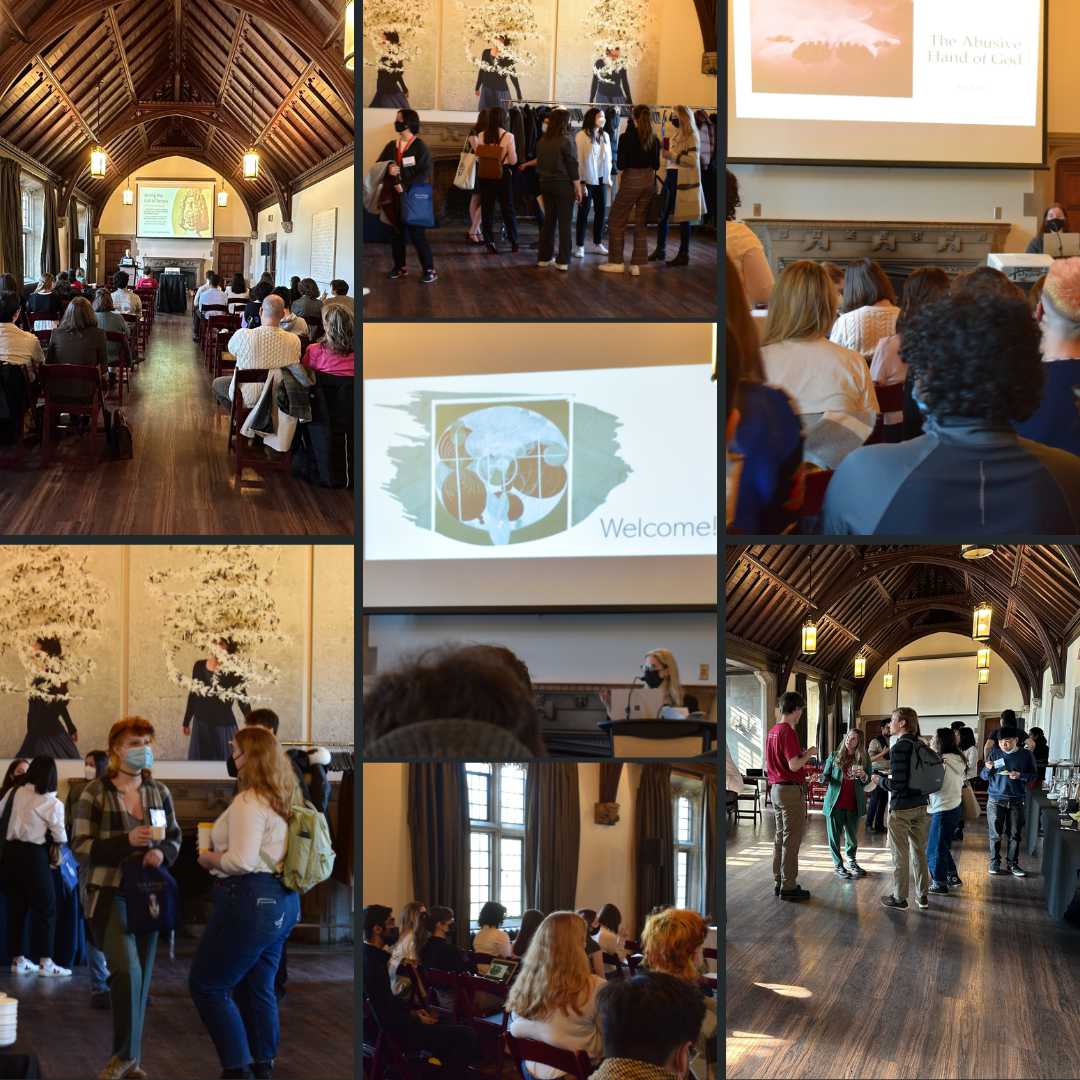Welcome to the Department for the Study of Religion (DSR)!
The DSR is a vibrant site of research and teaching where you can study diverse religious and spiritual traditions in their historical, cultural, political, and textual contexts. Our courses cover numerous traditions, including Indigenous spiritualities, Judaism, Christianity, Islam, and Hinduism, and also focus on existential questions, such as the nature of happiness, narratives of creation, evil and suffering, and love, sex and family. Some of our students may have grown up witih religious traditions while many have no religious affiliation or background whatsoever; every student is welcome in our classes.
We are more than happy to answer your questions about the DSR. Please contact the Undergraduate Administrator, Amy Huynh at religion.undergrad@utoronto.ca, with any questions you may have. For general questions about admissions into UofT, please contact the Faculty of Arts & Science.
Explore our courses!
RLG105H1 Spirituality, Religion and the Environment with Professor Alexander Hampton
RLG106H1 Happiness with Professor Kevin O'Neill
→ Happiness for Beginners: A new and very popular DSR course
→ "What is happiness? Do you even want to be happy?" Fundamental questions from Kevin O'Neill
Articles
RLG195H1 Alt-Bible: What Could Have Been with Professor John Marshall → New DSR course examines different ways "The Bible" could have turned out
See all our undergraduate courses
→ Visit our section of the Academic Calendar.
Connect with fellow students!
Religion Undergraduate Student Association (RUSA)Our active student association, known as the Religion Undergraduate Student Association (RUSA), plans events throughout the academic year for students and advocates on behalf of students to the department. From bubble tea socials and de-stressor events to academic and career seminars, meet and connect over great food with peers interested in the study of religion. |
 |
DSR & RUSA Annual Undergraduate Research ConferenceOur annual research conference provides an opportunity for students to present on works related to the study of religion and see how students can combine the study of religion with various disciplines such as computer science, economics, history, media studies, philosophy, psychology, and more. Join us at the beginning of April to hear insightful presentations and connect with current students! → See previous conference programs and keep an eye out for registration information early next year |
 |
First-Year Learning Communities (FLC)First-Year Learning Communities (FLCs) are smal groups of up to 35 Arts & Science students with a similar academic interest who are registered in several of the same courses and tutorials. FLCs are supported by two upper-year Peer Mentors, a Staff Advisor, and Faculty Advisor. FLCs meet bi-weekly to engage in academic and social activities. By joining a FLC, you can:
The DSR is a part of the Humanities FLCs offered each year. Registration typically begins in June. |
|
See where your studies can take you!
Arts & Science Internship Program (ASIP)
The DSR is proud to be a part of the Arts & Science Internship Program (ASIP), which combines 12-20 months of paid work experience with specialized professional development training. Through ASIP, you can:
- Gain paid work experience
- Learn essential job skills
- Build your professional network
- Apply your academic learning in a real-world setting
- Explore different career options
Community-Engaged Learning
In RLG426H1 Religion in the Public Sphere: Community Engaged Learning, students in their upper-years of study have an opportunity to learn about and reflect upon the ways that religion and religious diversity shape public life through a 30-hour placement with a community partner. Students have previously worked with community partners such as Becoming Neighbours, Romero House, Jewish Immigrant Aid Services, Matthew House Toronto, the Metropolitan Community Church of Toronto, the Mennonite New Life Centre, and the Office for Refugees, Archdiocese of Toronto.
→ Learn more about the course and how to apply. Please note that this course may not be offered every year.


